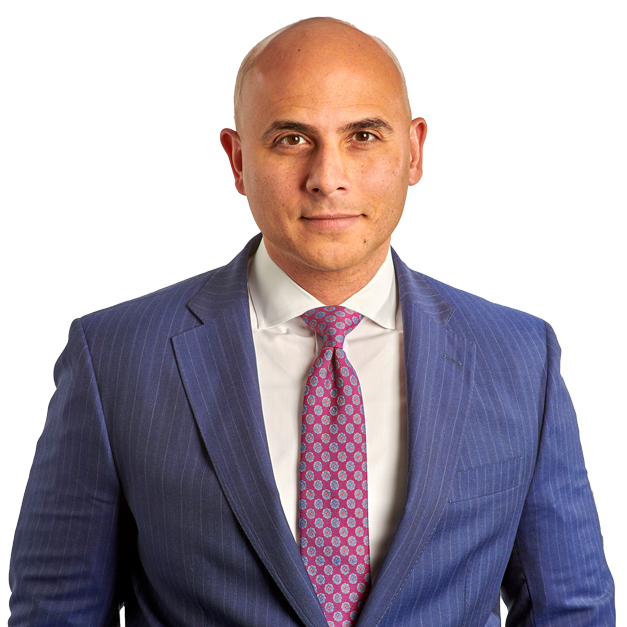Insights
Thought Leadership
White Collar Roundup - June 2018
Fourth Circuit Allows Border Search of Cellphone With Suspicion
The U.S. Court of Appeals for the Fourth Circuit, in United States v. Kolsuz, held that a forensic search of a cellphone during a border crossing didn't require a warrant under the Fourth Amendment. In the case, Hamza Kolsuz, from whom border officers had previously confiscated unlicensed firearm parts during attempted border crossings, was detained at Dulles airport when attempting to travel to Turkey. The officers again seized firearm parts, detained Kolsuz, and manually searched his iPhone, which was not password protected. The officers then arrested Kolsuz and took the phone to the Homeland Security Investigations office, where computer forensic agents attached the phone to a data extractor and downloaded its contents for later review. Kolsuz moved to suppress, arguing that the search and seizure were not covered by the border search exception and that the more stringent rules pertaining to searches incident to arrest governed. The district court disagreed, and Kolsuz was convicted at a bench trial during which the government introduced evidence obtained during the forensic search. Kolsuz appealed. The issue on appeal was "whether the forensic search of Kolsuz's phone, and the associated invasion of Kolsuz's privacy, was justified under the border search exception." In a 2–1 opinion, authored by Fourth Circuit Judge Pamela Harris, the court held that it was, concluding "the link between the search of Kolsuz's phone and the interest that justifies border searches was sufficient to trigger the border exception." The court also held that this was a "nonroutine border search," akin to the nonroutine search of a cellphone incident to arrest in Riley v. California, 134 S. Ct. 2473 (U.S. 2014), which required "some form of individualized suspicion." In doing so, the court recognized the district court's conclusion that the searching agents had reasonable suspicion, but stopped short of holding that was the appropriate standard, instead concluding that the border agents' reliance on it rendered the evidence admissible in any event under the good faith exception to the exclusionary rule. Circuit Judge J. Harvie Wilkinson III concurred, explaining that, to him, the majority opinion left too little room for the political branches to address this issue and took up something that, in his view, the judiciary is ill-suited to address.
Eleventh Circuit Allows Border Search of Computer With No Suspicion
In United States v. Touset, the Eleventh Circuit took a more aggressive view than did the Fourth, holding that law enforcement could properly conduct a search of a computer with no suspicion. The court's bottom line was plain: "[O]ur precedents about border searches of property make clear that no suspicion is necessary to search electronic devices at the border." In the case, Karl Touset arrived at the airport in Atlanta on an international flight from The Netherlands. During inspection, agents seized and searched his computer, which contained images of child pornography. He was ultimately convicted, but challenged the search. Eleventh Circuit Judge William H. Pryor wrote in a 2–1 majority opinion that the agents didn't need any suspicion to search the computer. He noted, "A forensic search of an electronic device is not like a strip search or an X-ray; it does not require border agents to touch a traveler's body, to expose intimate body parts or to use any physical force against him." Therefore, the search is proper even without suspicion. But as an alternative, the court also held that the agents had "reasonable suspicion" to conduct the search. It turns out that law enforcement had been tipped off that Touset had received several small payments from the Philippines, which was indicative of involvement in the child sex trade, and had learned about an investigation by Yahoo! into "emails facilitating the transactions." Interestingly, Judge Pryor noted and rejected the recent result in Kolsuz. U.S. District Judge Timothy J. Corrigan, sitting by designation, dissented in part. He would have left for another day the issue of whether suspicion is required because, in his view, the government had reasonable suspicion to justify the search. In any event, because of the majority's alternate holding, the case might not be ripe for U.S. Supreme Court review, but with a growing division among the circuits, the issue might still make it there shortly.
Convicted Pump-and-Dump Lawyer Sees Hope at Second Circuit
As we reported here, the prosecution of William "Billy" Walters for securities fraud took an unusual turn when the government began to investigate pre-indictment leaks in the case. During the grand jury investigation, both The New York Times and The Wall Street Journal ran stories about the investigation. The stories ran in 2014, and the indictment was not returned until 2016. The government learned that one of the FBI agents on the team had violated the grand jury secrecy rules and leaked the information. Nonetheless, Walters went to trial and was convicted. He appealed, and during oral argument at the Second Circuit, the judges pressed the parties about the issue. Walters argued that the trial judge didn't give the issue enough consideration, but found it didn't prejudice Walters. The panel seemed hostile to the government's defense of the district court, asking why the case shouldn't be remanded for a hearing on the issue. To listen to the oral argument, click here.
SEC's Easy Path to Victory With Another Convicted Lawyer
As we reported here, and expounded upon here, Richard Weed, an attorney in Boston, was convicted of securities fraud for his role in writing fraudulent opinion letters for shell companies that were used in a pump-and-dump scheme. As often happens to those convicted of securities fraud, Weed's troubles were not over. Before the indictment against him, the SEC had filed a civil complaint alleging securities fraud. The civil action was stayed pending the criminal case, which resulted in a conviction on all counts. Afterward, in the civil litigation, the SEC moved for summary judgment, alleging that Weed was "collaterally estopped from disputing the facts that form the basis of his criminal conviction." Weed claimed that "he did not have a full and fair opportunity to defend himself in the criminal proceeding." His argument was that "the government failed to produce exculpatory evidence for his trial counsel, rendering his conviction constitutionally infirm." And he argued that the "factual issues that formed the basis of the criminal conviction are not identical to the SEC's claims in the civil action." U.S. District Judge Nathaniel M. Groton of the District of Massachusetts disagreed. He found "unconvincing" the contention that Weed "did not have a 'full and fair' opportunity to litigate the issues in his criminal proceeding." Further, he continued that, while "Weed is not estopped from litigating the factual allegations not charged in the criminal indictment" that are in the civil complaint, "he would not benefit from doing so because the fraud for which Weed was convicted in the criminal case is 'more than sufficient to support liability'" for the infractions alleged by the SEC.
Car Dealer Charged With Money Laundering
Used car dealers often have a reputation—deserved or not—for sharp practice. But as alleged by the U.S. Attorney's Office for the Southern District of Texas, Tochukwu Nwosisi, owner of a dealership in Indianapolis, stands out. As reported here, he is accused of laundering money from an advance-fee scheme through his used car dealership. "The scam allegedly involved false promises of investment funding by individuals impersonating U.S. bank officials to victims around the world, who were told they had to make certain payments before they could supposedly receive their funding." And as described by the DOJ, sometimes "the perpetrators allegedly met with the victims at local U.S. embassies or consulates and fabricated U.S. government documents to make the victims believe the U.S. government was sponsoring the investment agreements." Nwosisi is alleged to have received international and domestic wire transfers into the business bank accounts of his used car dealership. "The victims were under the impression that such payments were necessary to receive their investment funding. Nwosisi allegedly used the victims' payments to, among other things, pay himself a portion of the funds and purchase vehicles that he then shipped to the scheme's perpetrators in Nigeria." Brazenly, though perhaps not uniquely, "[a]s banks closed his accounts for suspicious activity, Nwosisi continued to open new bank accounts to receive payments from victims."



